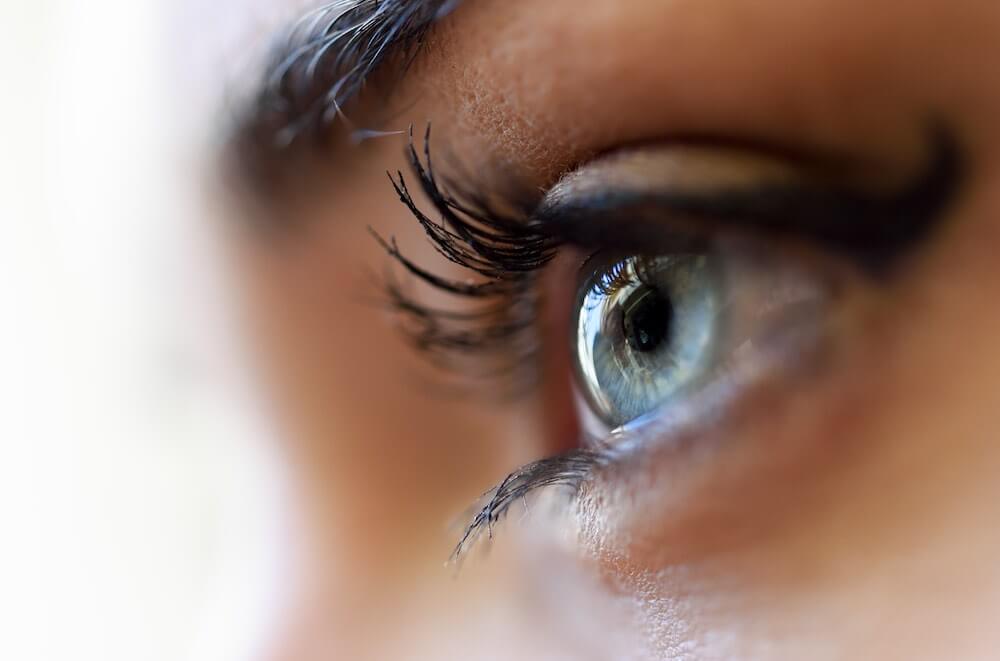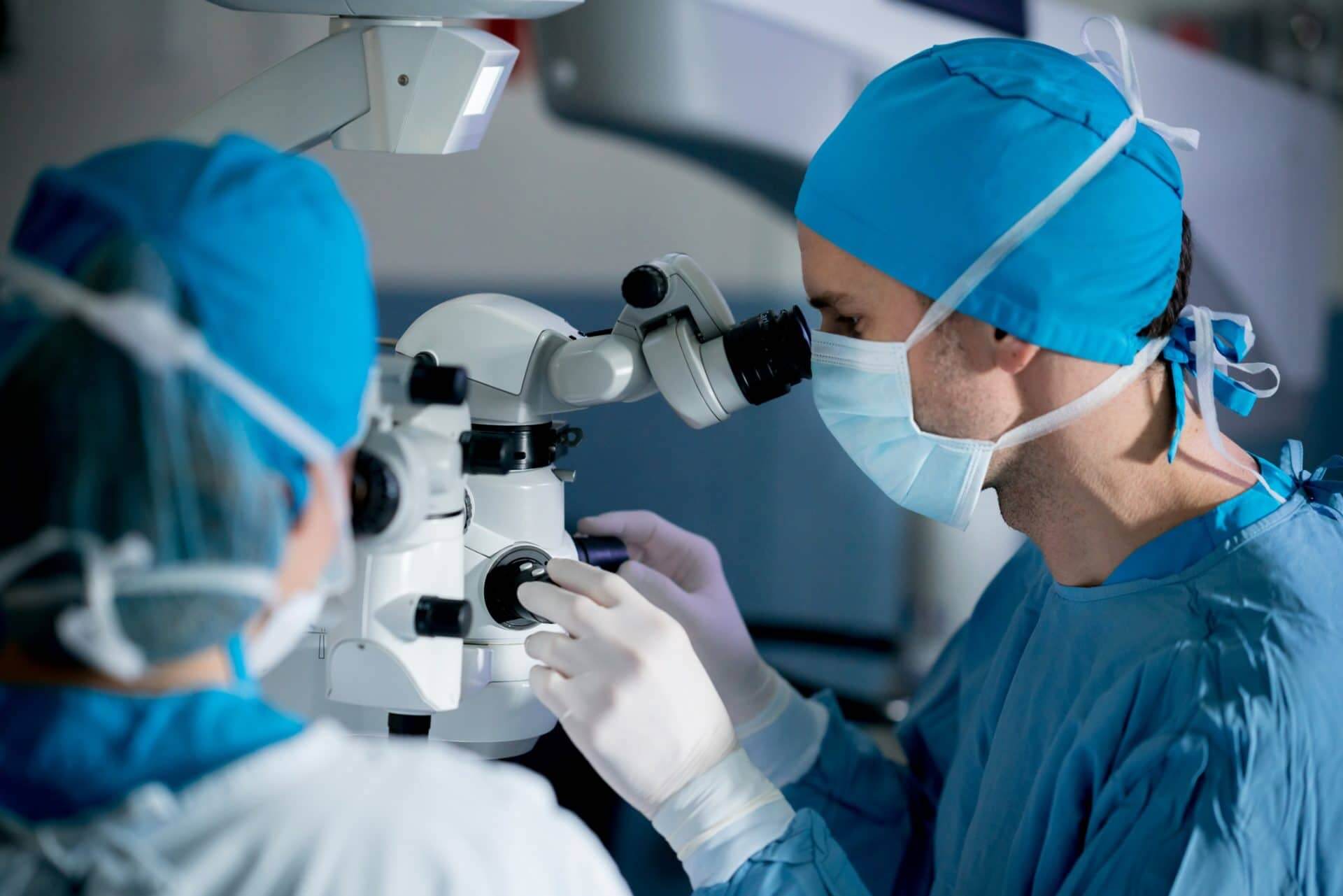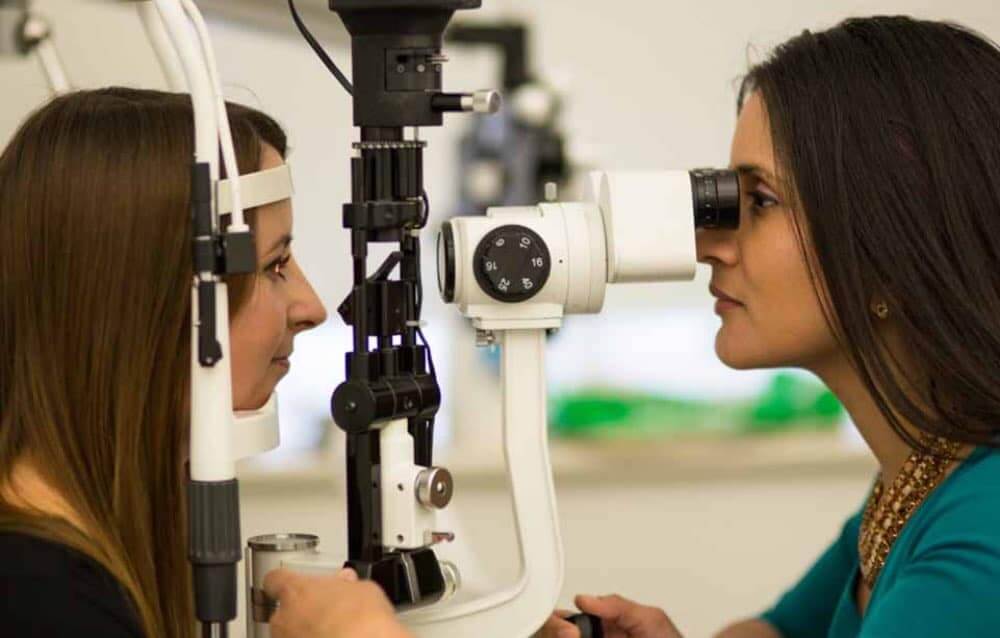We’re spending more and more time staring at screens. This increases the likelihood of strain, fatigue and other eye problems developing.
[toc]Glasses and contact lenses are prescribed to correct focusing errors, such as short-sightedness (myopia), long-sightedness (hyperopia), astigmatism and the need for reading glasses (presbyopia).
Glasses, though, don’t correct the vision problems from how we use our eyes today, e.g. prolonged screen use.
Instead, try these alternative ways to help improve your eyes and encourage more comfortable eye health.
Here’s how to improve vision without glasses.
1. Resting Your Eyes

It’s important that you give your eyes enough rest. For starters, you need to get enough sleep as it allows your eyes to rest properly, repair and recover.
As well as sleep, you should also give your eyes regular breaks throughout the day. This is particularly important for people who have jobs that involve staring at a computer all day as this can help prevent eye problems from developing or existing conditions worsening.
There are two good rules to remember:
- The 50-10 rule – for every 50 minutes you spend looking at your computer or device screen, give your eyes a 10 minute break. You could close your eyes or you could get up and walk around your office. You could even take a quick trip outside to get some fresh air. This also helps prevent cardiovascular and musculoskeletal issues that might arise from staying in the same position all day.
- The 20-20-20 rule – for every 20 minutes you spend looking at a screen, look at something 20 feet away for 20 seconds.
These techniques help to lay the foundations for good eye health. They prevent eye strain that might develop into more serious issues.
2. Eye Exercises

Eye exercises have not been found to be a good way to improve vision. There’s lots of information on the Internet promoting eye exercises to get rid of glasses.
You can safely ignore what you find.
There are research studies going on for ways to reduce the development or progression of short-sight using eye drops and contact lenses, and getting outdoors in daylight more often.
3. Eating the Right Foods to Promote Healthy Vision

A well-balanced, nutritious diet isn’t just essential for a healthy body, it’s also essential for eye health. Nutrients like zinc, omega-3 fatty acids and vitamins C and E can help prevent age-related vision problems like cataracts.
To benefit from these nutrients, fill your plate with:
- Green leafy vegetables – spinach, kale and collard greens.
- Oily fish – salmon, tuna, sardines and mackerel.
- Non-meat protein sources – eggs, nuts and beans.
- Citrus fruits – oranges.
- Foods rich in vitamin A – carrots and sweet potatoes.
- Foods rich in sulfur, cysteine and lecithin – garlic, onions and shallots.
- Foods rich in antioxidants – yellow peppers and goji berries.
Tip: Noticing a pattern here? These nutritious foods are mainly yellow and green.
Research has found that yellow and green fruit and vegetables help to prevent age-related macular degeneration, which is a leading cause of blindness.
Vitamin supplements may also help. For example, those that contain lutein, zinc and vitamins A and E, will help to support eye health.
4. Laser Eye Surgery

Laser eye surgery is another way you could improve your vision. And what’s better is that it can free you from the burden of glasses and contact lenses!
The landmark US FDA Prowl studies found that, overall, patients had fewer issues such as dry eyes and night vision problems after laser eye surgery than with their previous glasses or contact lenses.
That also means no more thick, heavy lenses if you’re short sighted or need to switch between different pairs of specs.
And certainly no need to experience dry, tired eyes from wearing contacts. You could wake up and see the world in perfect clarity as soon as you open your eyes.
There are three main types of laser eye surgery:
LASEK/PRK
LASEK works by removing the thin outer transparent skin layer of the cornea, which is called the epithelium.
LASEK and LASIK are similar in more ways than just their name, as the excimer laser application is the same in both procedures but, in LASEK, there is no flap created.
LASEK involves partially removing the corneal epithelium from the other underlying layers. The surgeon then uses an excimer laser to reshape the tissue.
Patients sometimes experience less discomfort when having LASEK and the procedure takes only five minutes per eye.
LASIK and LASEK take five minutes per eye but LASIK can involve a feeling of pressure for 20-25 seconds that isn’t part of the LASEK/PRK technique.
So, LASEK (PRK) is an easier procedure to undergo. However, the post-operative days after LASEK can involve significant pain or discomfort.
During that time, you’ll have to wear a bandage contact lens to keep the cornea in place as it heals and you may have to use topical steroid drops longer than LASIK patients.
SMILE
SMILE is used to treat short sightedness but is far less commonly performed than either LASIK or LASEK (aka PRK).
A femtosecond laser is used to create two broad arc-shaped incisions under the corneal surface. A portion of corneal tissue is extracted with forceps, which changes the shape of the cornea – thus, correcting vision.
Like LASEK and LASIK, it takes around five minutes per eye.
Because a small incision is made, the cornea heals in a few hours, similar to LASIK.
You can experience sharper vision from the next day to up to a week later, and side effects, like dry eyes, are less likely initially as fewer nerves are affected (due to fewer nerves being interrupted).
However, there is no difference in dry eye symptoms by six months after treatment between SMILE and LASIK. All measures of dry eye are the same.
SMILE is only used to treat short-sighted patients. It cannot correct long-sightedness. If you’re long sighted or have an astigmatism of over -5.00 dioptre, you may be referred for LASIK or LASEK.
LASIK
The most popular and widely performed type of laser eye surgery, LASIK is preferred by over 85 percent of potential patients in Europe and the US.
It also boasts very high success rates, with satisfaction greater than 98 percent.
A review conducted by the National Institute for Health and Clinical Excellence (NICE) finding that 90 percent of laser eye surgery patients come within one dioptre of perfect vision.
The procedure uses a remarkably accurate femtosecond laser to create a corneal flap, to allow the excimer laser to then reshape the cornea and correct vision.
The whole procedure takes just five minutes per eye and for most people, the flap surface heals within hours.
You’re likely to see improvements in your vision almost instantly and can return to work within one to two days of your surgery.
Looking for a Laser Eye Surgery Clinic?

At Focus Clinic, we offer the above types of laser eye surgery and can help you achieve the optimal visual acuity you desire.
We’re the only laser eye surgery clinic in the UK with a 100 percent success rate.
Our surgeons have over 45 years of experience and have performed more than 35,000 surgeries between them. That’s why we’re rated #1 on independent review site Trustpilot.
We also offer a unique and unbeaten 10-year guarantee, unlike most other clinics who only offer one year.
Less than one in 500 of our patients require a follow-up treatment after the initial 12 month period, but our guarantee means these treatments will be on us. It’s nice to have – just in case.
If you’d like to find out more about us and our offerings, click the button below to get in touch with a member of our team.
Ready To See Clearly?
Focus has a 100% 20/20 vision success rate for all common short-sighted prescriptions using it’s A-LASIK technique.

